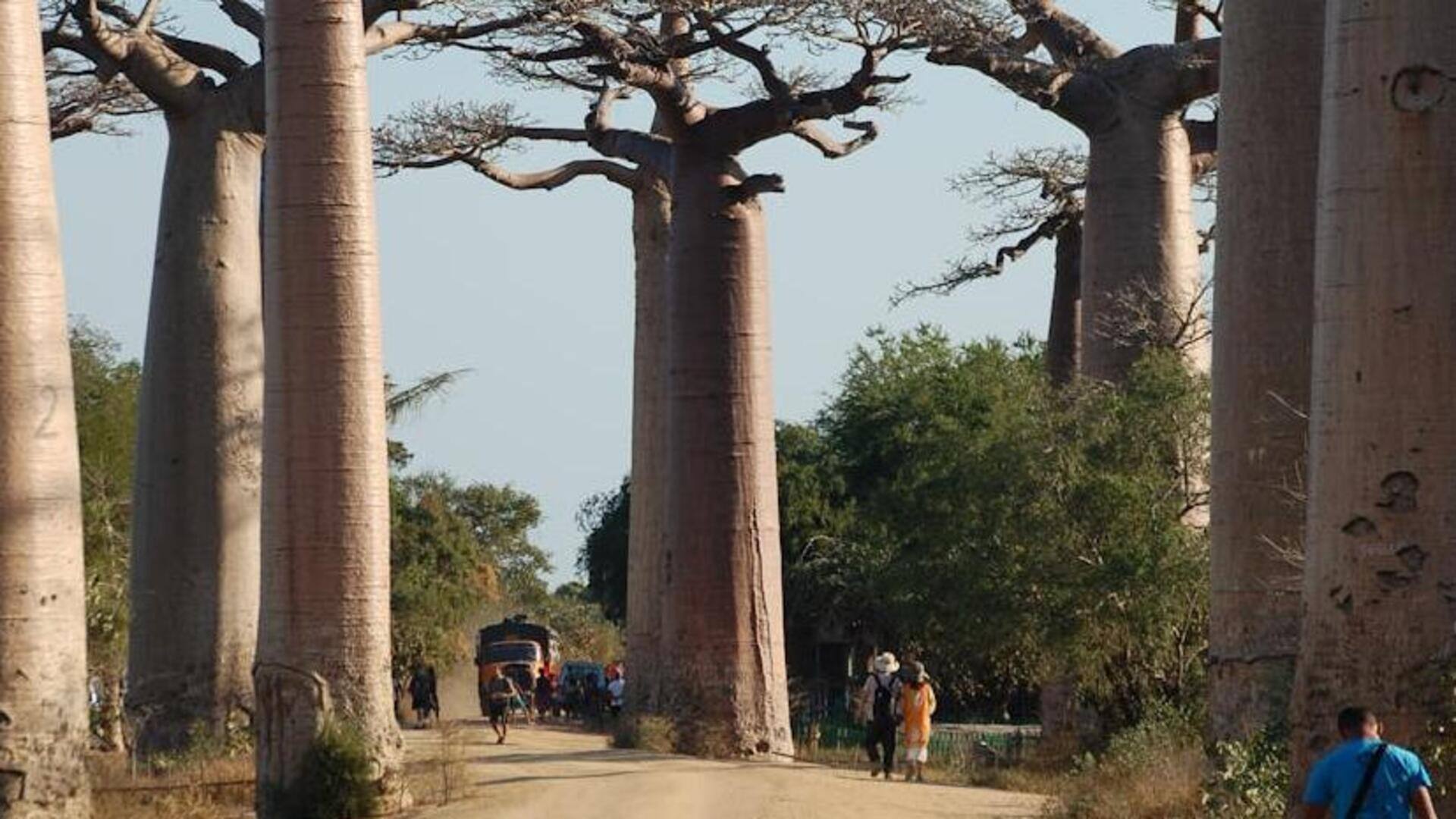
Hop on Madagascar's unique wildlife and conservation adventure
What's the story
Madagascar, an island nation off the southeast coast of Africa, is a haven for nature lovers and adventure seekers. Known for its unique biodiversity, the island is home to thousands of species found nowhere else on Earth. From lush rainforests to arid deserts, Madagascar offers a diverse range of ecosystems to explore, making it a perfect destination for those interested in wildlife and conservation.
Lemur trekking
Walk amongst lemurs
Trekking in Madagascar's forests to see lemurs is iconic. Over 100 species, from the tiny mouse lemur to the larger indri, are endemic. Guided tours in Andasibe or Ranomafana National Parks allow close observation of these creatures. Visitors learn about their behaviors and conservation efforts, enhancing understanding of Madagascar's unique wildlife and the importance of preserving it.
Botanical exploration
Explore unique flora
Madagascar's isolation has led to a unique plant variety, with over 90% endemic. The south's spiny forests are home to plants adapted to dryness. Exploring these areas in Ifaty or Berenty Reserve offers a glimpse into their evolution and significance to ecosystems and cultures. Botanical tours highlight the importance of these plants, providing insights into their unique adaptations and roles.
Eco-tourism
Support conservation efforts
Participating in eco-tourism activities not only enriches your travel experience but also supports conservation efforts directly. Many reserves and parks offer programs where tourists can get involved with reforestation projects or educational workshops about environmental protection. By choosing accommodations and tour operators that prioritize sustainability, travelers contribute positively toward preserving Madagascar's natural heritage for future generations.
Snorkeling and diving
Discover marine life
Madagascar's coastline features pristine beaches and clear waters, teeming with marine life. Nosy Be and Ifaty are famous for their coral reefs, offering top snorkeling and diving experiences. Visitors can see colorful fish, sea turtles, and occasionally dolphins or whales during migration seasons. These activities highlight the richness of Madagascar's marine biodiversity and the importance of conserving our oceans.